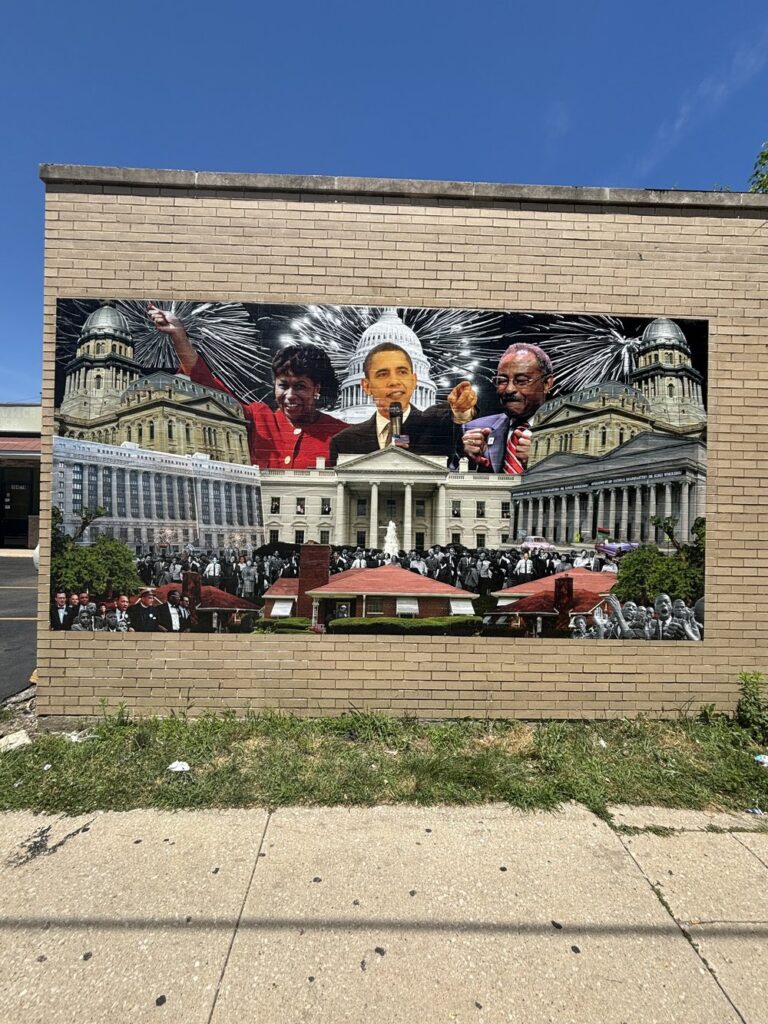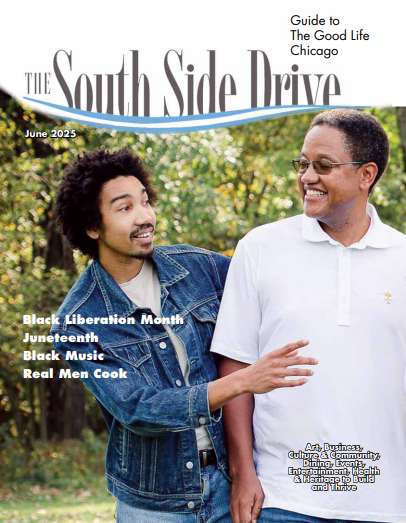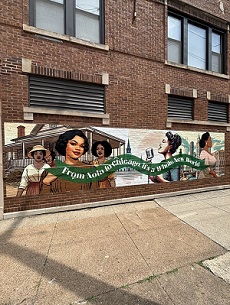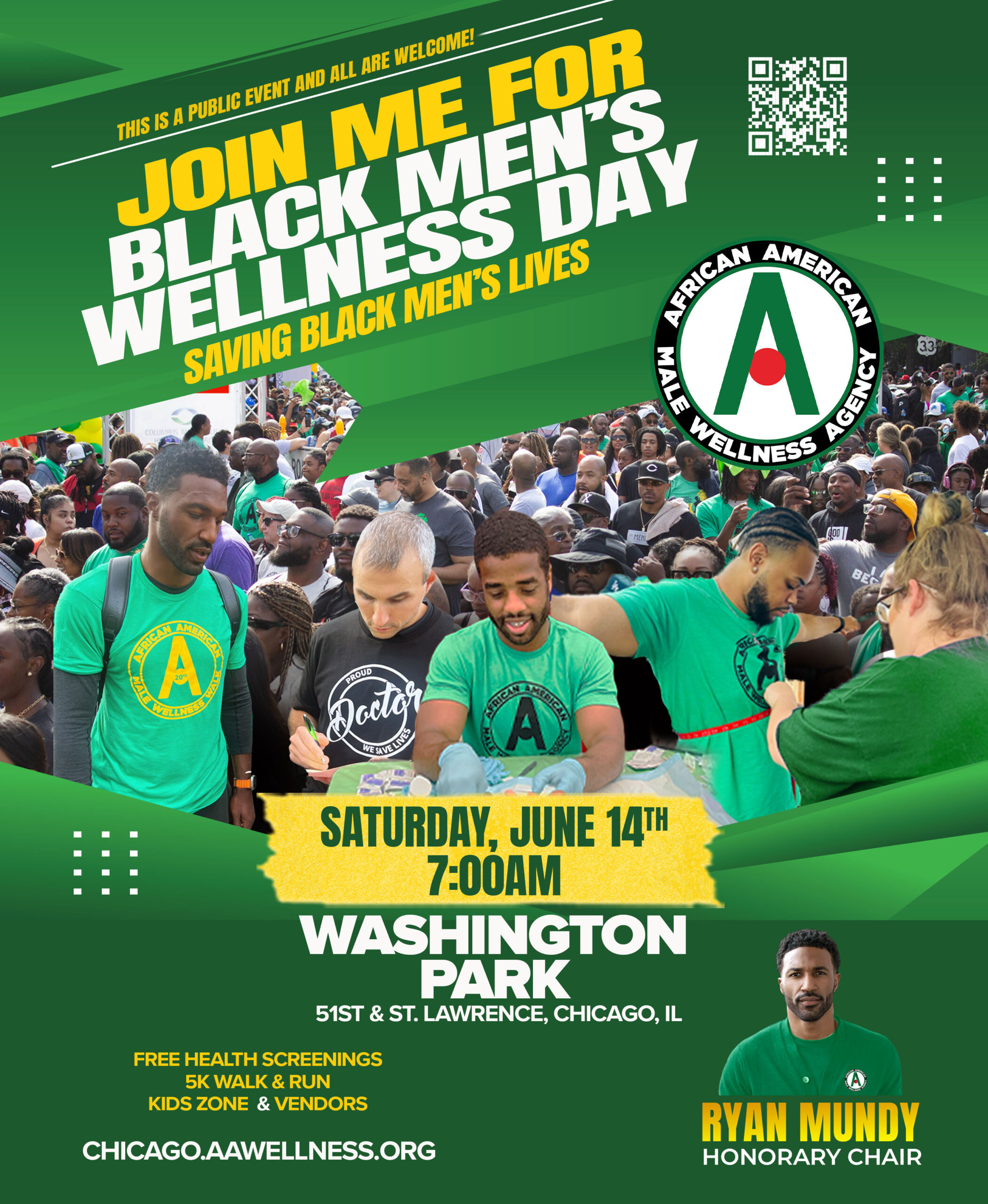Oasis: a fertile spot in a desert.
I use desert as a metaphor for a community void of culture, of history, of business, of hope — a dry land. A fertile spot in that community would be a spot where culture flourishes, where history lives, where business resides, and where hope abounds. Let’s say that desert is the Chatham community.
Chatham wasn’t always a dry land. In the 1950’s, when African Americans began integrating into Chicago neighborhoods south of 69th Street, Chatham was one of the most coveted of those communities. Within the Chatham community, 79th Street, from State Street to Cottage Grove Avenue was most prominent with its beautiful storefront businesses, white-owned at first, soon to be replaced by Black owners as white-flight accelerated.
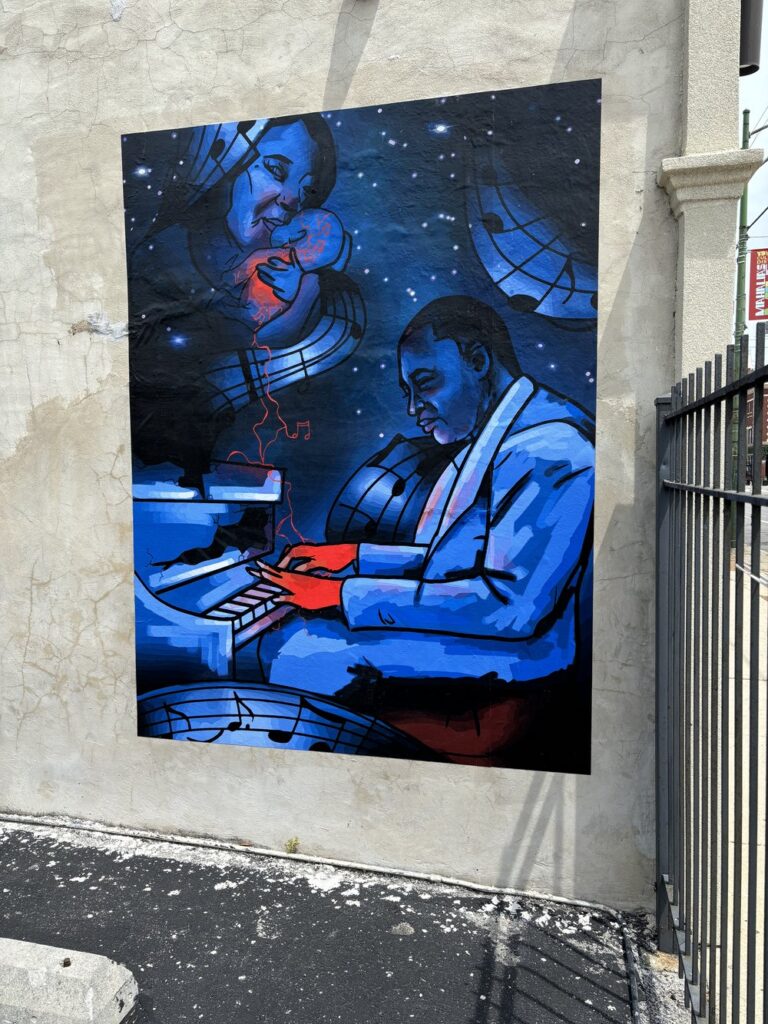
Somewhere along the way, Chicago’s 79th Street became known as “the 9.” Children, students of Ruggles Elementary School at 78th and Prairie, walked freely up and down the street. The school store was on 79th Street between Calumet and Prairie, right next to a Black-owned flower shop.
In the 60’s, a young boxer named Cassius Clay became acquainted with Chicago’s 79th Street by his frequent visits to the Tiger Lounge, on “the 9” near Champlain Avenue. Later, Clay joined the Nation of Islam (NOI) and changed his name to Muhammad Ali. Although he continued to frequent 79th Street, it was no longer to hang out at the Tiger Lounge, he had a new reason; to visit two of the businesses Ali helped the NOI to acquire: the Shabazz Bakery and the Shabazz Clothing Store on the 9 between Vernon and Eberhart Ave. Down the street, on 79th and Cottage Grove Avenue was the Independence Bank, one of Chicago’s first Black-owned Banks. Certified Food Store on 79th and Calumet had everything one would find in a large supermarket, plus fresher produce. Izola’s Restaurant,
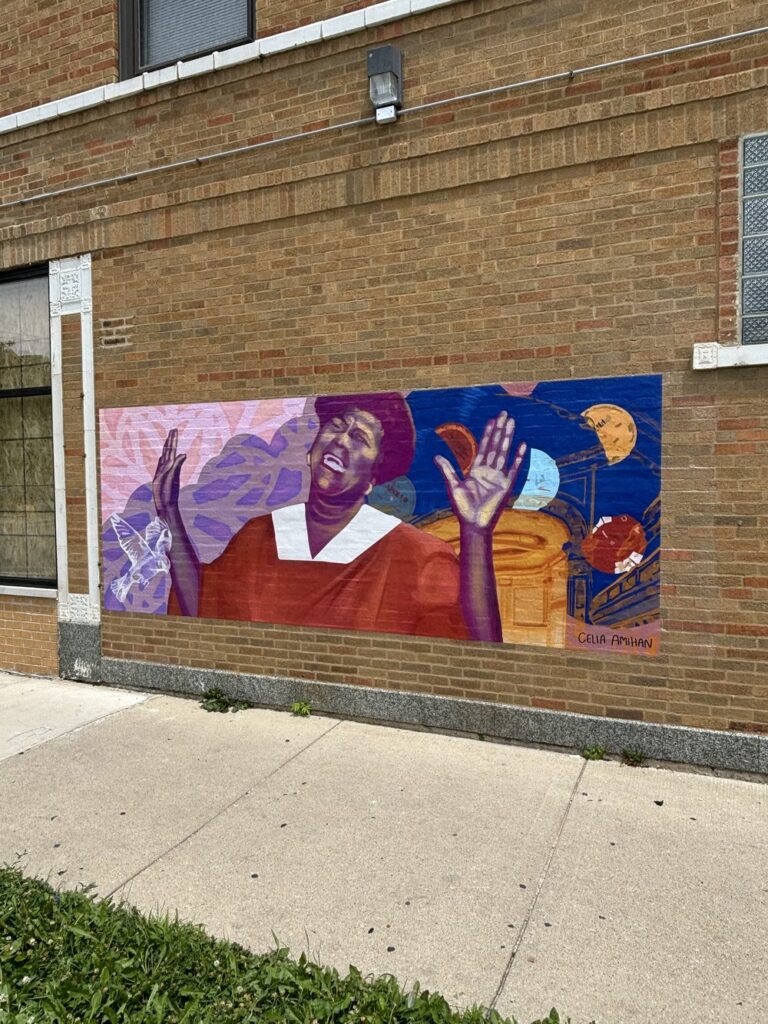
on 79th and Eberhart was a citywide favorite, often patronized by celebrities as noted by the autographed photographs prominently displayed throughout the restaurant. When owner, Izola White, passed away in 2018, one newspaper spoke of the great-tasting soul food the restaurant was known for and added that it was located in “a neighborhood known for violence.” Times had changed. A vibrant community had become a dry land, withered by gang rivalry and violence. The relative peace of the 50’s and 60’s, had slowly diminished.
Residents of Chatham and surrounding areas (known, collectively, as Greater Chatham), refused to watch silently as their beloved community was under siege. In June 2016, the Greater Chatham Initiative (GCI) was founded. Its mission: to strategically invest in the Chicago Communities of Chatham, Greater Grand Crossing, Avalon Park, and Auburn Gresham, so that they can re-emerge as communities of opportunities and choice. GCI is a collaborative of more than 250 individuals and organizations working in Avalon Park, Auburn Gresham, Chatham, and Greater Grand Crossing. Under the leadership of the Executive Director, Nedra Sims Fears, GCI established Mahalia’s Mile, named after the legendary Mahalia Jackson.
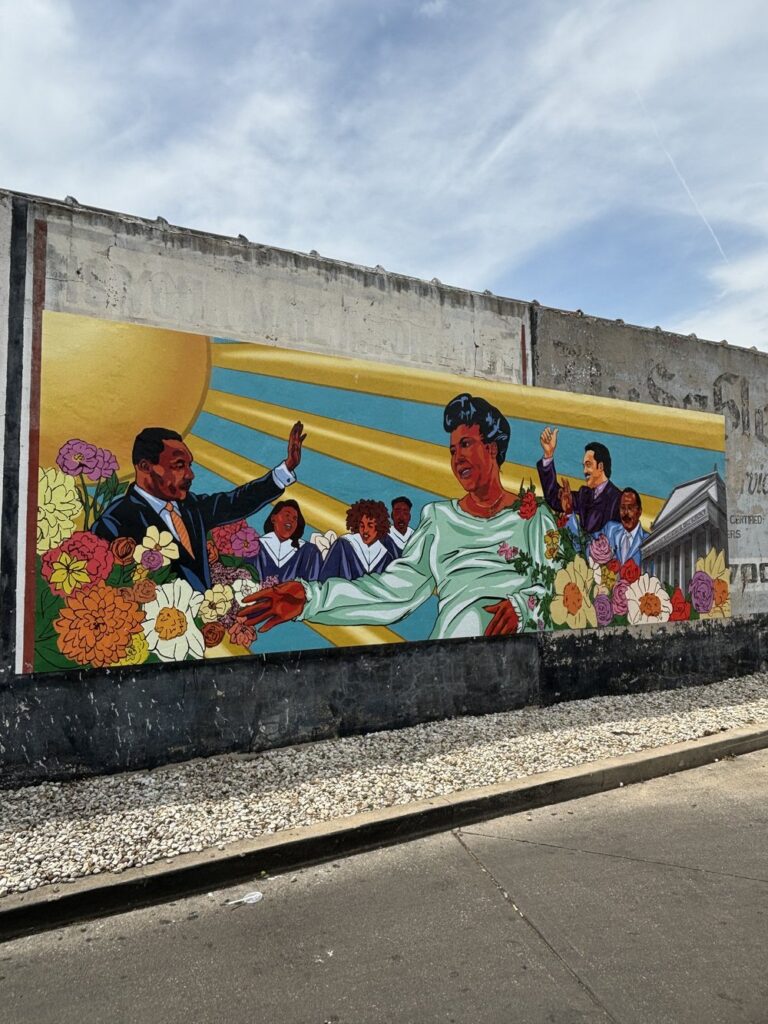
Mahalia Jackson was a gospel singer and civil rights icon who lived in the Chatham community. During the March On Washington in 1964, as Mahali stood behind Reverend Dr. Martin Luther King, Jr while he was giving his famous speech, she said, “Tell them about the dream, Martin,” prompting him to recite the “I have a dream” portion of the speech. Those words were so powerful and so memorable, that to this day his speech is known as the “I have a dream” speech. Could her namesake oasis in the midst of Chicago’s south side be a part of that dream?
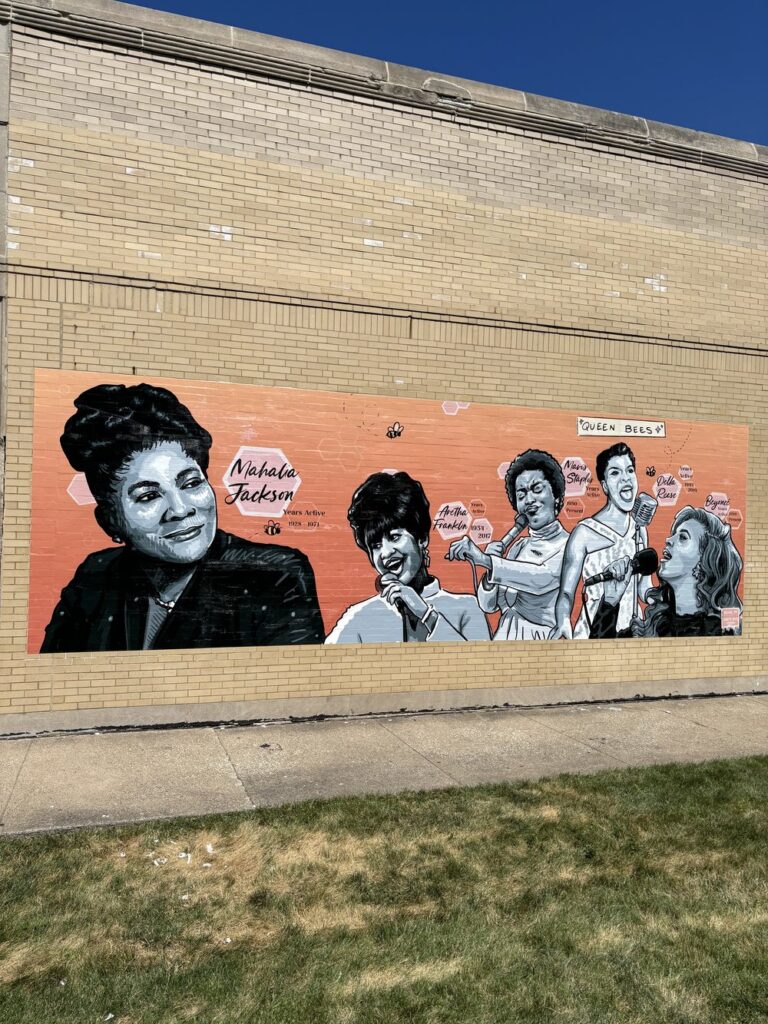
In February 2024, the State of Illinois officially designated Mahalia’s Mile a Cultural District, making the area eligible to apply for $3 million in state funding to foster economic development and preserve the district’s unique cultural identity.
A key part of Mahalia’s Mile is the art, and artist, Kristen Williams, proprietor of Mahalia’s boutique is responsible for making art, rendered by professional as well as amateur and even unknown artists, an important part of Mahalia’s Mile.
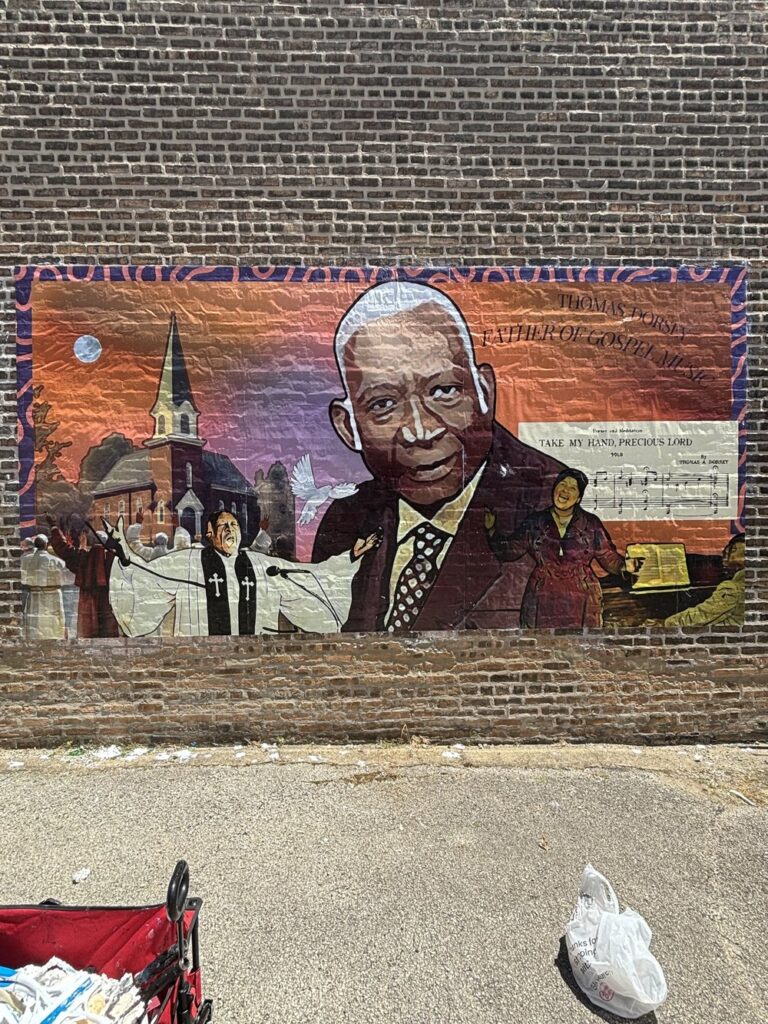
“The art is what brings people in,” Williams was quoted as saying, “and we’re trying to create a community of artists to learn and collaborate and grow from each other. As a collective, we can help each other. We can access one another’s resources.”
In September 2022, GCI coordinated a group of designers, architects, developers, churches, artists, and others in the neighborhood to transform a once-vacant 8,500 square foot lot on the corner of State Street into a public outdoor plaza. The plaza, named Mahalia Jackson Court, includes a community garden, picnic tables, murals, and space for pop-up events. Within Mahalia Jackson Court, visitors can enjoy live music, farmers markets and other seasonal events. GCI Executive Director, Nedra Sims Fears explained that “The corridor’s theme will celebrate Black culture, Mahalia Jackson and Chatham’s dynamic past and present. The mission is to uplift the community, not displace neighbors.”

Mahalia’s Mile cultural district hosts more than sixty dining establishments and forty-plus Black-owned businesses, including Mahalia’s Gift Shop. The Whitney Young Library, named after the civil rights icon and National Urban League Executive Director, Whitney Young, stands at 79th Street and Martin Luther King Drive. Thousands of years of Black history and Black culture live on the shelves of the library.
For years, at the other end of the area designated as Mahalia’s Mile (from 79th and State Street to 79th and Cottage Grove) residents were plagued by “a corner of crime” fueled by Happy Liquor Store at 7901 South Cottage Grove Avenue. Each year, Pastor John Hannah led his congregation and Chatham residents in a “Prayer on the 9”. They prayed for an end to the constant gun violence, which occurred almost weekly on that corner, causing nearby businesses to leave the area. In May 2025, the answer to their prayers began. Pastor Hannah purchased the Happy Liquor Store and renamed it the “Corner of Life.” On Sunday, May 18, Mayor Brandon Johnson, Father Michael Pfleger and thousands of South Side residents joined Pastor Hannah and his congregation in a march and a rally celebrating what was once a hotbed for crime, being redeemed as the Corner of Life – a place dedicated to health, healing and community.
Now Mahalia’s Mile is complete. Mahalia Jackson Court begins the mile at State Street, and it ends with the Corner of Life at Cottage Grove Avenue – and in between, a vibrant tapestry of Black businesses, Black art, Black culture, and Black history powerfully honors Mahalia’s legacy and fuels the future.”
